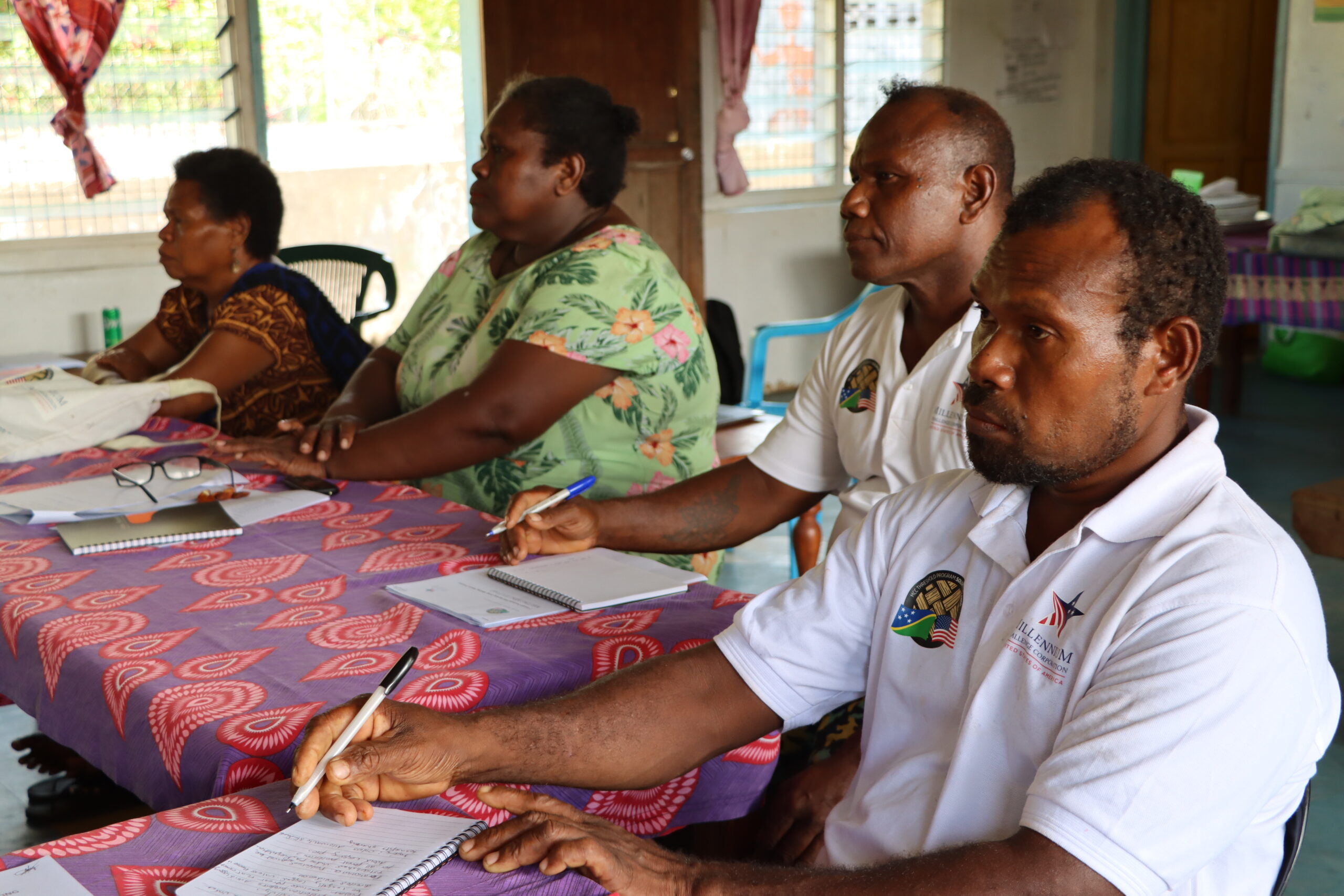
Solomon Islands stakeholders came together in Kirakira, provincial capital of Makira-Ulawa Province, recently to advance discussion on forest carbon initiatives.
Supported by the Millennium Challenge Corporation (MCC) Solomon Islands Threshold Program (SITHP), the two-day meeting focused on the province’s ongoing work to protect the forests and tap into voluntary carbon markets.
Makira-Ulawa Province, home to endangered rainforests and high-potential tourism opportunities, plays an important role in both the MCC-SITHP Forest Value Enhancement Program (FoVEP) and tourism initiatives.
The meeting featured presentations from Nakau, an implementing partner, outlining the mechanics of voluntary carbon markets and how the province’s forest projects can become more attractive to international carbon credit buyers.
Nakau representatives explained carbon buyers are looking for ‘high integrity’ offsets that come with tangible co-benefits such as saving endangered species, protecting fragile ecosystems or creating sustainable jobs for local communities.
These high integrity projects, certified under international carbon standards, such as Plan Vivo, make Makira-Ulawa’s forest carbon efforts highly competitive on the global stage.
The meeting brought together representatives from the Provincial Government, NonGovernment Organisations, the Provincial Council of Women, Family Support Centre, landowning groups, implementing partners – Live and Learn Solomon Islands and Nakau and the Ministry of Forestry.
Provincial Planning Specialist for Makira-Ulawa Province, Francis Sulua, expressed gratitude for the MCC-SITHP collaboration and the working group members.
“I believe the working group’s discussions have fostered concrete plans to support forestry carbon projects in Makira,” Sulua said.
“The provincial government acknowledges the working relationship we are establishing through this program,” he added.
MCC Resident Threshold Director in Solomon Islands, Charles Jakosa emphasized the importance of local engagement noting, “the provinces are where the real work happens”.
By enabling meetings like this, Jokosa continued, MCC supports communities in tackling the challenges and seizing opportunities in forest carbon markets.
He added holding high level meetings in the provinces was an important feature of the Solomon Islands Threshold Program.
Under the MCC-SITHP Forest Value Enhancement Program, significant strides have been made, with two forest sites now participating in voluntary carbon activities covering over 12,000 hectors.
More than 540 community members have already taken part in sessions on carbon accounting and forest management, with nearly 40 percent of participants being women – underscoring the inclusive nature of these projects.
One key site, Viru Harbor, was the first to launch forest carbon efforts last year, serving as a model for other communities.
As Makira-Ulawa continues its work, the future looks promising for the province’s forest conservation and participation in global carbon markets.
The MCC-Solomon Islands Threshold Program is a four-year $20 million grant investment developed and implemented in partnership between the Government of Solomon Islands and the U.S. Government through its Millennium Challenge Corporation.
The partnership agreement was signed in 2022 and is currently working to increase economic opportunity for Solomon Islanders through investing in sustainable forestry practices and its tourism sectors.
Grant funds are provided on behalf of the American people and are not loans that partners need to repay. Rather, they are investments in economic growth designed to enhance opportunities for the people of Solomon Islands.

